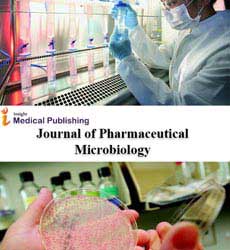Abstract
Detection of Multidrug-Resistant Gram-Negative Bacteria in Untreated Wastewater of Public Hospitals in Northern Iraq
Wastewater is considered as a household of antibiotic-resistant Gram-negative pathogens, and access to these microbes to cause a serious health risk. The purpose of this study is to detect Gram-negative bacteria including their antibiotic resistance patterns in the sewer drains of three public hospitals in Ranya-Sulaymaniyah governorate in northern Iraq. The isolates were identified and classified using VITEK-2 automated identification system. Disk diffusion assay was performed to assess antibiotic susceptibility. In total, 732 Gram-negative isolates were identified; Escherichia coli (276/732,37.7%), Pseudomonasaeruginosa (128/732,17.5%), Klebsiella pneumonia (104/732,14.2%), Salmonella entericaserovar Typhi (93/732,12.7%), Shigella sonnei. (72/732,9.8%) and AcinetobacterBaumannii (59/732,8.1%) were identified using conventional method, respectively. Isolates were tested for its susceptibility against a group of antibiotics including; tetracycline, ciprofloxacin, gentamycin, streptomycin, amikacin, ampicillin and azithromycin. Multiple Antibiotic Resistance index (MARI) was used to calculate resistant index, levels of the isolates varied from 0.1 and 0.8%. Escherichia coli was top resistant isolate (237/276, 85.7%) followed by Acinetobacter baumannii (34/59, 57%) to seven antibiotics, other isolates were found to be resistant to at least three tested antibiotics. Resistance was highest to Gentamycin, Amikacin and Tetracycline (57%, for each) and lowest with Azithromycin (14.2%). As a result, multidrug-resistant Gram-negative bacteria were detected in the public hospitals wastewater, which aids their broadcasting infections in the community.
Author(s):
Abstract | Full-Text | PDF
Share this

Google scholar citation report
Citations : 36
Journal of Pharmaceutical Microbiology received 36 citations as per google scholar report
Abstracted/Indexed in
- Google Scholar
- Secret Search Engine Labs
Open Access Journals
- Aquaculture & Veterinary Science
- Chemistry & Chemical Sciences
- Clinical Sciences
- Engineering
- General Science
- Genetics & Molecular Biology
- Health Care & Nursing
- Immunology & Microbiology
- Materials Science
- Mathematics & Physics
- Medical Sciences
- Neurology & Psychiatry
- Oncology & Cancer Science
- Pharmaceutical Sciences

